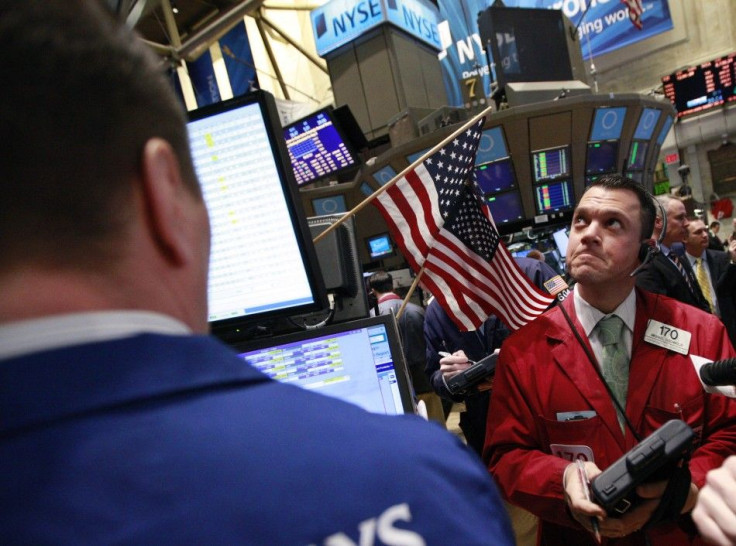Wall Street Rally Will be Put to the Test Next Week
Wall Street Week Ahead

A rally on Wall Street will be put to the test next week, with the S&P 500 index at its highest closing level since before the collapse of Lehman Brothers Holdings Inc. in 2008 and the European Central Bank about to flood the financial markets with a new wave of cheap money.
The broad index has risen 8.6 percent for the year, closing at 1,365.74 on Friday. The S&P 500's close was the highest since June 6, 2008, a few months before Lehman Brothers went bankrupt as the global credit crisis spiraled out of control.
While the magnitude and swiftness of the gains have created concerns that the market is due for a pullback, a break above 1,370.58, which was 2011's intraday high, could trigger more buying as investors fear missing out on further gains.
We have reached an exhaustion point and an inflection point. The sentiment is bullish, and the money flow has gotten bullish, and that's freaking people out a bit, said James Dailey, portfolio manager at TEAM Asset Strategy Fund in Harrisburg, Pa. What's more likely, or normal, would be a 5-7 percent decline [from current levels], but if we move above 1,370, that could be the next leg up.
The S&P 500 has struggled to climb above 1,370, as the level has appeared to represent strong resistance in the past week.
For the week, the Dow Jones Industrial Average (DJI) and the S&P 500 (SPX) each rose about 0.3 percent, while the Nasdaq Composite index (COMP) rose 0.4 percent to close at its highest level since mid-December 2000.
Oil prices will also be in focus after Brent crude futures closed at $125.47 per barrel on Friday, the highest since last April, on fears of worsening tensions between Iran and the West.
The S&P and crude-oil prices have been showing a correlation so far. But oil at where it is now is a big deal, said Ben Schwartz, chief market strategist at Lightspeed Financial in Chicago. Schwartz explained that if oil keeps rising, it will threaten consumer confidence and pressure the stock market.
The movement in the euro will also be closely watched for hints about markets' appetite for risky investments.
The euro on Friday rose to its highest level in more than two months against the U.S. dollar and its highest level in nearly four months against the Japanese yen, with the ECB expected to make available another round of cheap money next week.
The ECB's three-year, long-term refinancing operation could help the euro's cause. Estimates suggest that the LTRO would draw bids of anywhere between 500 billion euros and 1 trillion euros, setting risk appetite on fire.
This weekend, Mexico is hosting a two-day meeting of the Group of 20 members' finance ministers and central bankers. The meeting will likely continue to be dominated by discussion of the European debt crisis, with countries in the euro zone pushing for their G-20 partners to commit more money to the International Monetary Fund to help victims of the crisis.
Economic data due next week include the following:
Tuesday -- Durable goods orders.
Wednesday -- Revised fourth-quarter gross domestic product estimates.
Thursday -- Weekly jobless claims and Institute for Supply Management manufacturing index details.
© Copyright Thomson Reuters {{Year}}. All rights reserved.






















